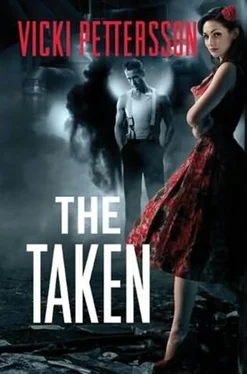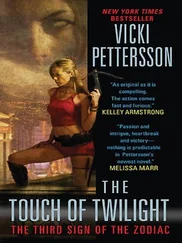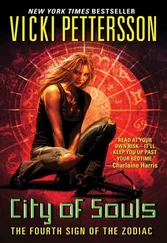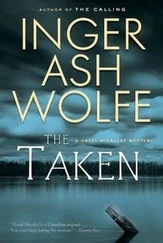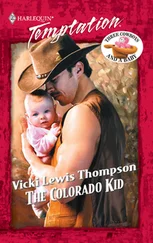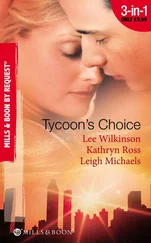“What? No car?”
He lifted a shoulder. “That, and I get kinda…”
“What was that?” she said, leaning forward.
He pushed his cup away. “I said I get turned around.”
Craig leaned back, and smiled. So much for being afraid. “A man who admits to being bad with directions.” She inclined her head, like that was the deciding factor. “I guess I can help.”
She could. Because he’d done more than watched her during the night. He’d also gone through her house. He’d found awards for journalism through high school, college, and even a national one for investigative reporting. He’d found old photo albums with newspaper clippings linking her to the paper she worked for now, one that her great-somebody had started decades earlier. That’s how he knew she’d have money if she wanted to flee, and sources if she wanted to stay.
And if Craig-or Kit-stuck around, then Grif would, too.
Besides, why shouldn’t he have the answers to questions that’d stalked him on both sides of the grave?
What had happened in the hours leading up to his death?
Who killed his Evie?
Who killed Griffin Shaw?
Kit rose, placed her coffee cup on the pink Formica counter, then turned to address him from the kitchen doorway. “We’ll start with this circled name, and my office.”
“So we have a deal?”
She gave a short nod, and pulled her robe tight. “It’s a Saturday, so it’ll be relatively quiet. We’ll take my car.”
“That fancy foreign number?”
“How did you know that?” She drew back.
Because I saw it from the room where your best friend was killed. I saw you, looking like Hayworth, making me want to pin you up, pin you down, take you for a different kind of ride altogether.
Grif cleared his throat, along with his damned mortal mind, and shrugged. “It’s not exactly a subtle machine. Fact, you might want to ditch it for something less showy.”
“I’m not leaving my car,” Kit replied coolly. “Wait here while I go change.”
Grif decided against telling her to pick something she’d want to be seen dead in, and watched her go, admiring her fragile yet aggressive sway, before rising for more coffee.
Today was the first day of the rest of his life. He could use another cup of joe.
As might be expected of a reporter, Kit had a knack for words. She noticed nuance and inflection, valuing precision in word choice and crispness of tone. Griffin Shaw didn’t enunciate half of what he should, she picked that up right away, letting his gerunds and suffixes fall away so that if she were writing them, she’d have to use a lot of apostrophes.
But she wasn’t writing them down, and that only partly because she was driving. Instead she kept catching herself gazing over at him, specifically at his full bottom lip when he spoke, his voice lodged deeply in his throat, as if only escaping reluctantly to take flight in the air. He was not a man overly fond of chitchat. Yet she liked it when he did speak. His voice was like gravel rolling around inside a buckskin pouch, and well-suited to his languid watchfulness, the half-lidded gaze, the wide-legged slump. He was like a lion in repose, his strength quiet and coiled until it was needed.
Kit knew. She’d seen him pounce.
And that’s really why she agreed to help him. She’d never partnered with anyone but Nic before, and that only because their skills were complimentary, not competing. Kit was something of a lone wolf herself. Yet it seemed apropos to take on a partner who was not only investigating Nic’s death, but who had prevented her own. Because even through the drugged haze of fear, shock, and pain, she’d seen her death coming. It’d looked like all the pain she’d ever felt had taken form to rise up against her, as tangible as a tsunami.
And then, because of Griffin Shaw, it was gone.
It was enough to have her overlook the way he’d put out his cigarette in her vintage Zeisel vase, and had obviously been pawing through her things while she slept. And if there was still an unknown element to him-including his mysterious entry into her house and life-well, Kit liked a good mystery as well as anyone.
She was also damned fine at her job. She’d find out everything there was to know about Griffin Shaw. In time.
But first, she thought, hand whipping her glossy wooden steering wheel to the left, who the hell killed my girl?
“Who the hell taught you to drive?” Grif asked, bracing against the door.
“My dad. Parked his car on an unpaved stretch of desert when I was twelve and made me go backwards. I had to perfect it before I was ever allowed to go forward.”
“He drive one of these foreign tin cans, too?”
“It was a patrol car,” Kit said, smiling slightly. She was used to the scorn from her friends. They all bought American, drove American, bled American. It was her one deviation from her rockabilly lifestyle-forgoing the old Fords and Chevys for this tight, sweet Italian ride. That stubbornness was a trait she’d inherited from her mother, who’d willingly conformed to the things that defined her-cop’s wife, professional mother-in all ways but one.
Shirley Wilson-Craig had refused to be domesticated. She’d cook, but only dishes made with fresh market ingredients, most of which took all day. She tidied, but hired someone else to clean. And she’d schedule playdates so Kit would never want for friends, but would never dress down for them, and never, ever carpool.
“Life should be lived as art,” she often told Kit, her ubiquitous cigarette dangling from its gold holder. “Everything has its place. Let in only those things that are greatly desired, no more and no less. That’s how to make sense of the world, and the only real way to achieve happiness.”
Once, over a dinner of lobster salad and roasted lamb, Shirley had reported to Kit and her father that she’d been asked to leave a PTA meeting for wondering aloud why business couldn’t be carried out over a two-martini lunch… or at least something more civilized than stale cardboard cookies. Yet she was smiling as she refilled her blue-collar husband’s champagne glass, and the look said, I may put myself in this box, but God help the person who tries to force me into it.
And Kit would never forget the way her father had wrapped his giant hand around that fragile glass and smiled back.
That inherited stubbornness was why Kit worked at her family’s newspaper, but, despite Marin’s prodding, refused to run it. Ditto the foreign car. She was a newswoman, and rockabilly to the core, but it was those years of formal family dinners with an aristocratic mother, and a father who reveled in his wife’s quirkiness, that really defined her. They might be gone, but she was not.
“Besides,” Kit told Grif now, “this fine automobile is a classic.”
“It’s Italian.”
Kit looked over, impressed, then registered his frown. “You’re cranky.”
He snorted and gazed out the window.
“And tortured, if I’m not mistaken,” she added, using the directness she’d gotten from her father.
Another grunt.
“You torture yourself,” she ventured, shooting him a look from the corner of her eye.
The next grunt meant that was true enough.
“You should let it go,” Kit said, and still thinking of her parents, added with a laugh, “Let someone else torture you for a while.”
His dark brow lifted beneath the brim of his hat. “You applying for the job?”
“Depends on the benefits package,” she shot back, playing along. “But I think I could manage it.”
“Oh, I’m sure you’d be great at it.”
She smiled, choosing to take it as a compliment. The lightness was a welcome distraction. “Well, it’ll have to wait. We’re here.”
Читать дальше
Конец ознакомительного отрывка
Купить книгу
